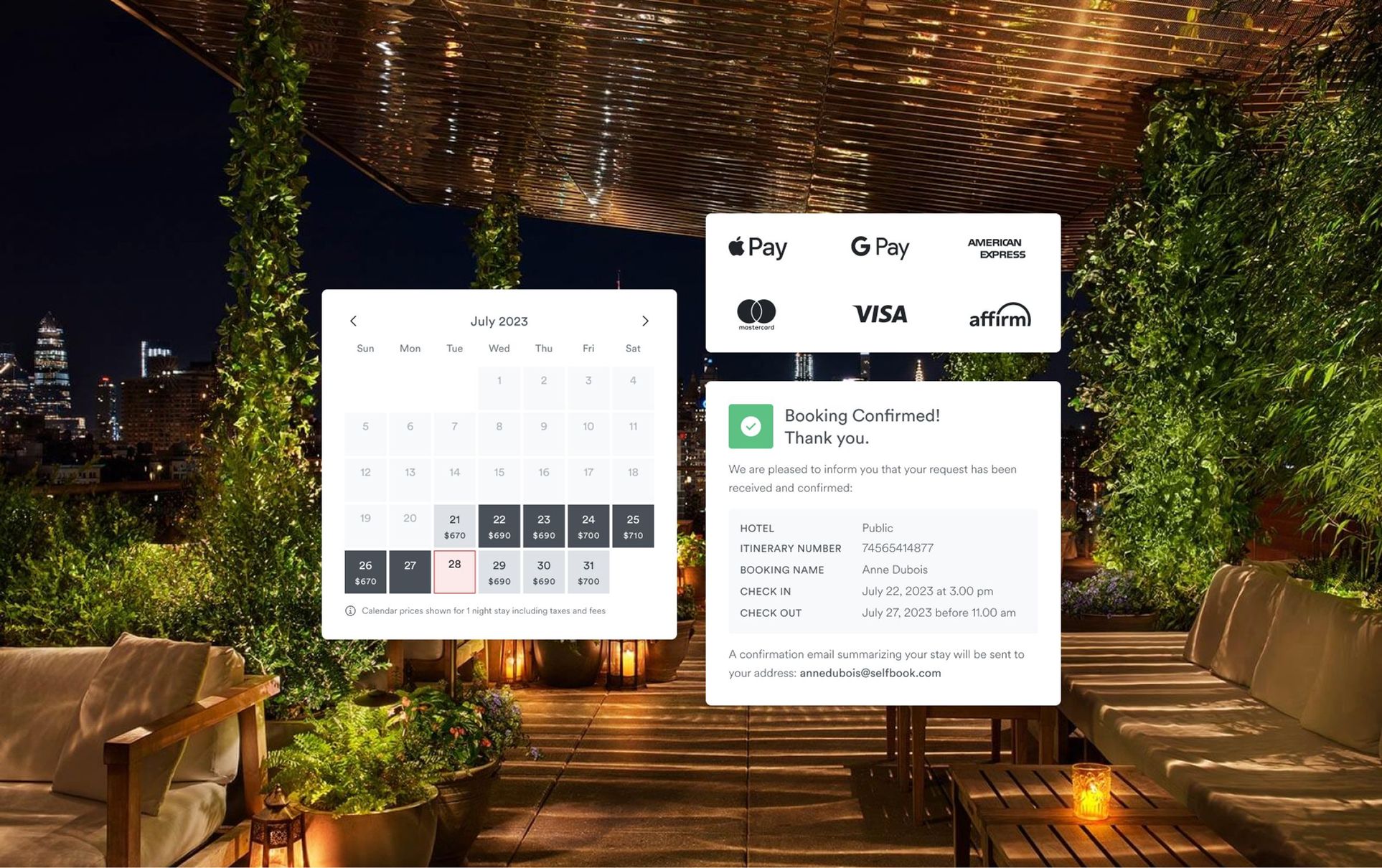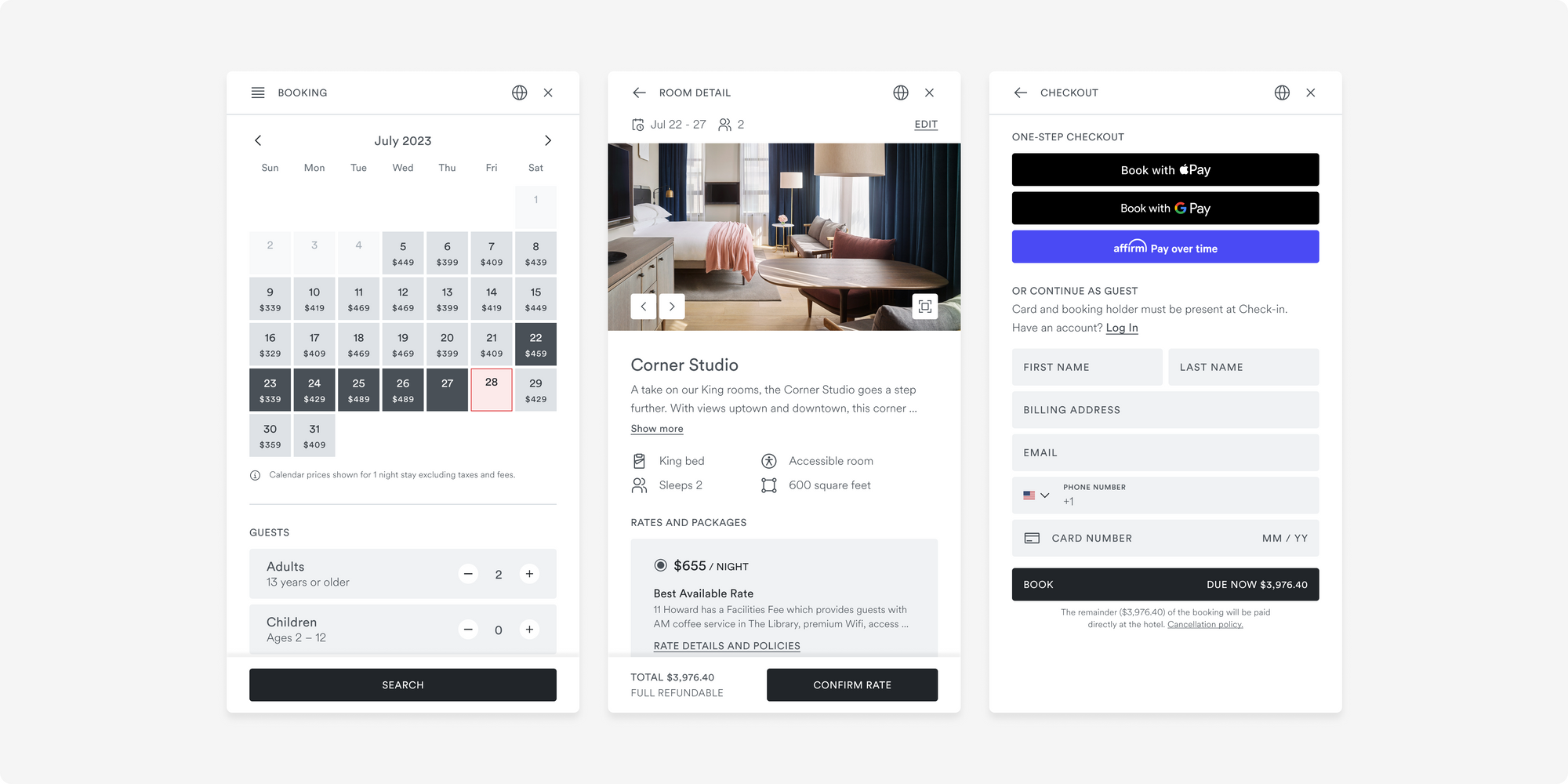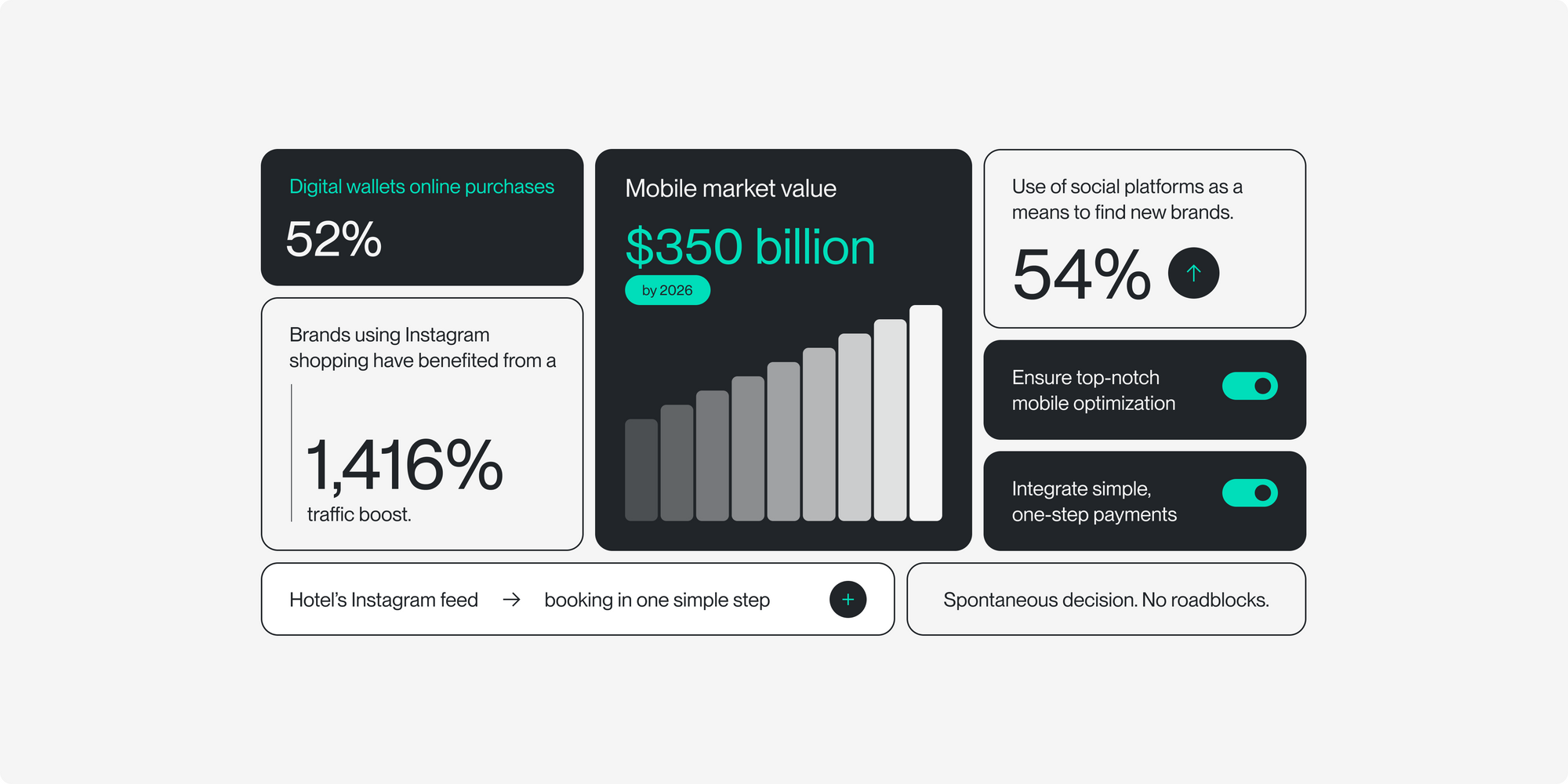Accounting for over half of web traffic worldwide since 2017 , mobile is the most common point of contact between consumers and brands online. For hotels, capitalizing on mobile traffic is key, particularly when it comes to taking advantage of last-minute hotel bookers and mobile-savvy consumers who have developed product discovery and shopping habits rooted in social media browsing.
Our guide shares best practices for making the most of mobile commerce and converting browsing to booking.
Ensure top-notch mobile optimization
While many hotels, especially independent boutique players, may not have native apps, creating a smooth mobile web experience akin to that of an app is mission critical for preserving potential customers. If a mobile journey is unpleasant, half of consumers are likely to refrain from visiting the site again or from recommending it to friends, regardless of whether they are fans of the hotel itself.
Hotels should focus on creating strong mobile websites to avoid losing potential customers to frustrating booking attempts on systems that have not been optimized for mobile. With a simple integration process, Selfbook can significantly improve hotels’ mobile booking flows, increasing the ease and speed with which guests can reserve and pay for rooms .
Integrate simple, one-step payments
Nearly three-quarters of carts are discarded during online shopping, and mobile websites suffer from this the most. Selfbook’s one-step solutions, including integrated mobile wallets, ensure frictionless payments for customers and are the most effective method of promoting sales.
Mobile wallets are one of the greatest assets to mobile commerce, with 52% of online purchases set to be made using digital wallets, and the market on track to be worth $350 billion by 2026 . By facilitating the use of digital wallets such as Apple Pay, Selfbook enables utterly seamless transactions for customers, increasing the likelihood of a completed transaction.
Simple payment and digital wallet capabilities are especially useful for last-minute hotel stays, which require a platform that can support a spontaneous decision without presenting any roadblocks.
Foster brand discovery via social media
Social media is a leading form of product and service discovery – nearly half of the under-35 population use social platforms as a means of finding new brands, while 54% of all consumers use Instagram, TikTok, and the like to research products. Brands with an Instagram shopping feature have seen a 1,416% lift in circulation, indicating the benefits of embedding shoppable content into social media posts.
For hospitality players, the social commerce equivalent is a direct booking link that takes customers from investigating a hotel’s Instagram feed to booking in one simple step. By integrating the benefits of social shopping into the hospitality sphere, hoteliers will see a jump in traffic, and increased bookings to match.



